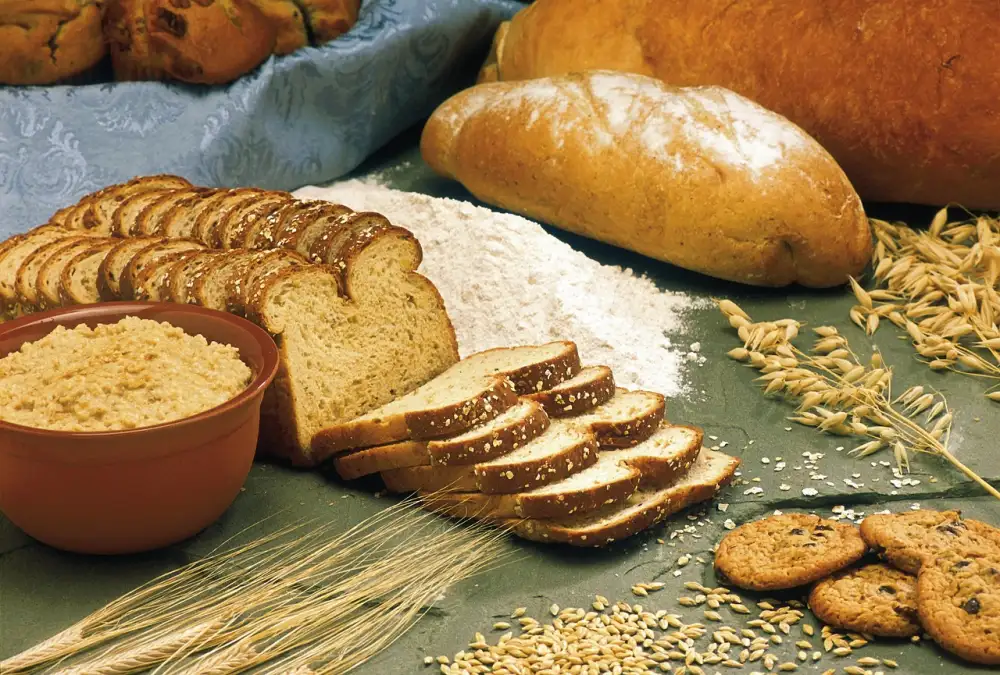Soft and Savory: Discover the Delightful World of Easy-to-Eat Soft Foods for Dental Health

Soft foods are a delightful and versatile option for those seeking comfort, nourishment, and dental health. Whether you have difficulty swallowing, are recovering from surgery or dental procedures, or simply enjoy the ease of eating soft foods, there is a wide array of options to explore. From creamy soups and mashed potatoes to tender meats and smoothies, the world of soft foods offers both nutrition and indulgence. In this article, we will delve into the benefits of soft foods for dental health, discover nutritious recipes to try, and provide tips for preparing and enjoying these delectable dishes. So let's embark on a culinary adventure into the wonderful world of easy-to-eat soft foods!
Benefits of Soft Foods for Dental Health
Soft foods offer numerous benefits for dental health. Firstly, they are easier to chew and require less force, reducing the risk of tooth damage or sensitivity. Secondly, soft foods are less likely to get stuck in between teeth or in dental work such as braces or dentures, minimizing the chances of plaque buildup and cavities. Additionally, soft foods are often rich in nutrients that promote oral health, such as vitamins A and C, calcium, and protein. By incorporating soft foods into your diet, you can maintain good dental hygiene while enjoying delicious and nourishing meals.
Soft Foods for People with Difficulty Swallowing
For individuals who experience difficulty swallowing, soft foods can provide much-needed relief and nourishment. These foods are easier to chew and swallow, making mealtime a more enjoyable and less stressful experience.
One option is to incorporate pureed fruits and vegetables into the diet. Applesauce, mashed bananas, and pureed carrots are all excellent choices. These foods not only provide essential vitamins and minerals but also offer a smooth texture that is easier to swallow.
Another great option is yogurt or pudding, which can be consumed without much effort. These creamy treats are not only delicious but also provide protein and calcium, promoting overall dental health.
Soups and stews are also ideal for those with difficulty swallowing. By blending the ingredients into a smooth consistency, they become easy to consume while still offering a variety of flavors. Adding cooked vegetables or pureed meats can further enhance their nutritional value.
Lastly, incorporating soft grains like oatmeal or quinoa can help meet dietary needs while being gentle on the throat. These grains can be cooked until they reach a soft texture, making them easier to swallow without compromising taste or nutrition.
By including these soft food options in their diet, individuals with difficulty swallowing can enjoy meals that are both nutritious and satisfying. It's important to consult with a healthcare professional or nutritionist to ensure that these foods meet specific dietary requirements while providing the necessary nourishment for optimal dental health.
Nutritious Soft Foods for a Balanced Diet
Soft foods are not only easy to eat, but they can also be incredibly nutritious, providing all the essential nutrients needed for a balanced diet. Incorporating a variety of soft foods into your meals ensures that you are getting the necessary vitamins, minerals, and proteins your body needs to thrive.
One excellent option is yogurt. Packed with calcium and protein, yogurt is not only gentle on the teeth but also promotes bone health. Opt for plain yogurt and add fresh fruits or honey for a touch of sweetness.
Another nutrient-rich soft food is mashed sweet potatoes. These vibrant tubers are rich in fiber, vitamin A, and potassium. They can be easily mashed and seasoned with herbs or spices for added flavor.
Eggs are another versatile soft food that offers an array of nutrients. Whether scrambled or poached, eggs provide high-quality protein and essential vitamins such as B12 and D.
For those who enjoy seafood, salmon is an excellent choice. It is not only soft in texture but also packed with omega-3 fatty acids which promote heart health.
When it comes to vegetables, steamed or roasted carrots are a fantastic option. Carrots are loaded with beta-carotene and fiber while being naturally soft when cooked properly.
Lastly, consider incorporating legumes into your diet through dishes like lentil soup or hummus. Legumes offer a great source of plant-based protein and fiber while being easy to chew and digest.
By including these nutritious soft foods in your diet, you can ensure that you are maintaining a well-balanced eating plan while still enjoying delicious meals that are gentle on your teeth.
Soft Foods for Post-Surgery or Dental Procedures
After undergoing surgery or dental procedures, it is important to consume soft foods that are gentle on the healing tissues. These soft foods provide the necessary nutrients for recovery while minimizing discomfort. Here are some excellent options:
1. Smoothies: Blend together fruits, yogurt, and a liquid of your choice to create a nutritious and easy-to-consume meal replacement.
2. Mashed Potatoes: Creamy and comforting, mashed potatoes are a go-to option after oral surgery. Add some butter or gravy for extra flavor.
3. Soups: Opt for pureed soups such as tomato soup or butternut squash soup. They are packed with vitamins and can be easily consumed without chewing.
4. Scrambled Eggs: Soft and protein-rich, scrambled eggs are an ideal choice for post-surgery recovery. Add some cheese or vegetables for added taste.
5. Yogurt: Full of probiotics and easy to eat, yogurt is not only soothing but also aids in digestion.
Remember to avoid spicy or acidic foods that may irritate sensitive areas in the mouth. It is crucial to follow your dentist's or surgeon's instructions regarding diet restrictions and gradually reintroduce solid foods as recommended.
Delicious Soft Food Recipes to Try
1. Creamy Butternut Squash Soup: Roast butternut squash, onions, and garlic until tender. Blend with vegetable broth, add a touch of cream, and season with salt, pepper, and nutmeg. Serve hot with a sprinkle of fresh herbs.
2. Mashed Cauliflower: Steam cauliflower florets until soft. Mash with butter, garlic powder, and a splash of milk until smooth and creamy. Top with grated Parmesan cheese for an extra kick.
3. Tender Meatballs in Tomato Sauce: Mix ground beef with breadcrumbs, egg, minced onion, garlic powder, salt, and pepper. Shape into meatballs and bake in the oven until cooked through. Simmer in tomato sauce until tender.
4. Silky Smooth Avocado Pudding: Blend ripe avocados with cocoa powder, honey or maple syrup, vanilla extract, and a pinch of salt until creamy. Chill in the refrigerator for a few hours before serving.
5. Easy-to-Chew Chicken Pot Pie: Cook diced chicken breast with carrots, peas, onions, and potatoes in a creamy sauce made from chicken broth and heavy cream. Pour into individual ramekins or a baking dish and top with puff pastry or mashed potatoes before baking until golden brown.
These recipes not only provide comfort but also ensure that you are getting the necessary nutrients while enjoying your meals without any discomfort or strain on your teeth or gums.
Tips for Preparing and Enjoying Soft Foods
1. Experiment with different textures: Soft foods don't have to be boring! Try blending or pureeing ingredients to create smooth and creamy textures. You can also add some crunch by topping your soft dishes with crushed nuts or seeds.
2. Season generously: Since soft foods may lack the natural flavors that come from cooking over high heat, it's important to season them well. Don't be afraid to use herbs, spices, and condiments to enhance the taste of your dishes.
3. Get creative with presentation: Just because your food is soft doesn't mean it has to look unappetizing. Use colorful garnishes or arrange your soft dishes in an appealing way on the plate. Remember, we eat with our eyes first!
4. Incorporate variety: Don't stick to just one type of soft food. Explore a range of options like soups, stews, mashed vegetables, pureed fruits, and smoothies. This will not only keep your meals interesting but also ensure you get a wide array of nutrients.
5. Opt for homemade versions: While there are many pre-packaged soft food options available in stores, making your own allows you to control the ingredients and flavors. Plus, homemade soft foods often taste fresher and more delicious.
6. Take small bites and chew slowly: Even though soft foods are easy to eat, it's still important to practice mindful eating habits. Take small bites and chew slowly to aid digestion and fully savor the flavors.
7. Stay hydrated: Soft foods can sometimes lack moisture, so make sure you drink plenty of fluids throughout the day. Water, herbal teas, and broths can help keep you hydrated while enjoying your soft meals.
By following these tips, you can make preparing and enjoying soft foods a delightful experience that nourishes both your body and soul.
In conclusion, soft foods offer a world of comfort and nourishment for individuals with dental health concerns or those in need of easy-to-eat options. They provide a gentle and soothing experience while still delivering essential nutrients for a balanced diet. Whether you are recovering from surgery, have difficulty swallowing, or simply enjoy the convenience and taste of soft foods, there are countless delicious recipes to explore. Embrace the versatility and benefits of soft foods, and let them bring joy to your culinary adventures.
Published: 15. 12. 2023
Category: Health



